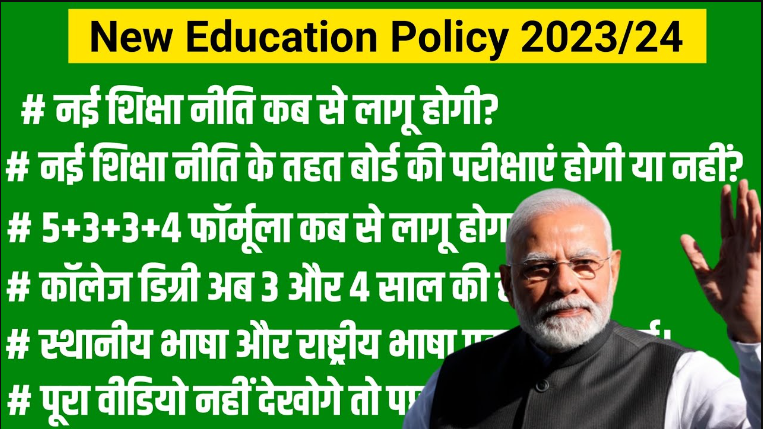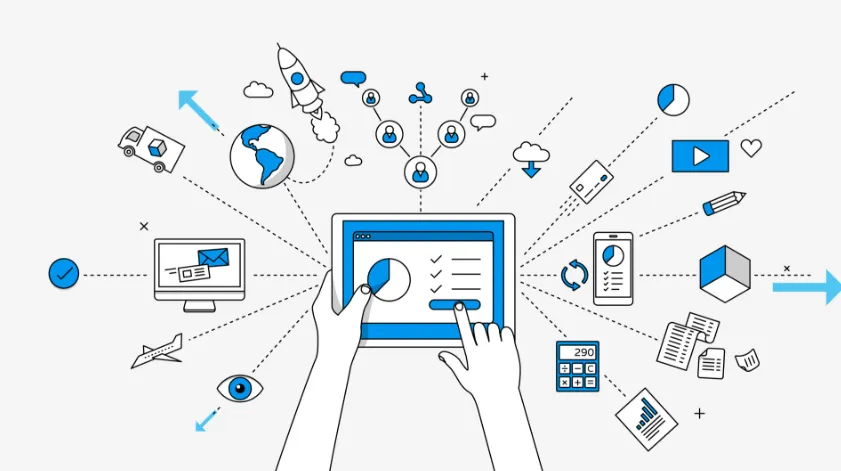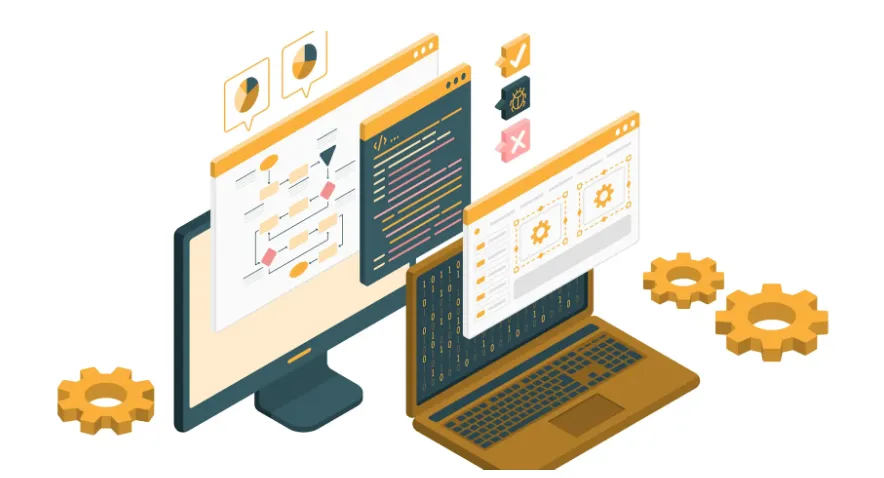India’s New Education Policy (NEP) 2023 aims to overhaul the country’s educational framework, focusing on flexible learning and a multidisciplinary approach. It emphasizes critical thinking and creativity and encourages intellectual curiosity in students.
The new policy seeks to transform India’s education system by 2040 to create a global knowledge superpower. By shifting from rote learning to fostering critical thinking skills, NEP 2023 envisions a student-centric and equitable system. The policy proposes sweeping changes, including a new curricular structure, the introduction of vocational education from a young age, and a greater emphasis on local languages and culture.
It also highlights the use of technology in education, aiming to make learning more accessible and inclusive. By bridging the urban-rural educational divide and aiming to produce engaged, productive, and contributing citizens for the 21st century, NEP 2023 sets the stage for a transformative journey in Indian education.
Contents
Introduction To New Education Policy 2023
The New Education Policy (NEP) 2023 marks a significant shift in India’s education system. With its focus on 21st-century skills, the NEP aims to transform learning experiences and outcomes. It heralds a new era in which students prepare for future challenges.
A Brief History
The journey to the New Education Policy began decades ago. Every few years, experts analyze the strengths and weaknesses of the current system. Substantial changes shape policy updates over time. The NEP 2023 builds on this legacy of continuous improvement.
Goals And Visions
The goals of the NEP 2023 are clear. It aims to create an inclusive, accessible, and equitable education environment. The vision is to empower students with knowledge, values, and agility. Here are some key objectives:
- Universal Literacy and Numeracy: Ensuring each child acquires essential reading and math skills.
- Critical Thinking: Fostering the ability to think independently and solve problems.
- Flexible Learning: Offering multiple pathways for learning, including vocational education.
- Teacher Training: Enhancing educators’ abilities to guide students effectively.
These goals align with global education standards. They aim to position India as a leader in the global knowledge economy.
Key Changes And Reforms
The New Education Policy (NEP) 2023 inaugurates groundbreaking transformations in the Indian education system. These reforms promise a vibrant future for learners. Explore the essential alterations designed to tailor education to contemporary demands and skills.
Curriculum Overhaul
The NEP brings a refreshed curriculum emphasizing critical thinking and creativity. The rigid structure of traditional learning gives way to a more flexible and integrated approach. Notable changes include:
- Interdisciplinary learning: Breaking silos between subjects.
- Reduced content: Focus on critical concepts for deeper understanding.
- Multiple languages: Emphasis on mother tongue and national languages.
- Continuous assessment: To monitor student progress effectively.
Focus On Skill Development
The policy centres on skill development from a young age. It envisions a workforce that is knowledgeable and adept in applying their skills. Elements of this focus include:
| Stage | Skills Emphasis |
| School Education | Coding, analytical skills, vocational crafts. |
| Higher Education | Industry-driven courses, internships, research. |
Practical applications, internships, and real-world problem-solving will become a staple of student learning paths. Vocational training is no longer an afterthought; it’s interwoven within the academic framework.
Pedagogical Innovations
The New Education Policy 2023 brings fresh air with its sharp focus on Pedagogical Innovations. This policy understands that the world is evolving rapidly, and so must our educational approaches. By weaving in advanced teaching methods and focusing on students’ understanding, this policy stands to revolutionize the Indian education system.
Emphasis On Critical Thinking
The policy lays a robust groundwork for developing sharp, curious minds. Traditional rote learning is taking a back seat to make room for education that drives students to question, analyze, and synthesize information. Let’s explore how critical thinking takes centre stage:
- Curriculum redesign to encourage questions over memorization.
- Teachers now serve as facilitators guiding exploratory learning.
- Real-world problems are used to develop critical reasoning.
- Group activities enhance problem-solving abilities among students.
Incorporation Of Technology
Technology is a cornerstone of the New Education Policy. It introduces tools and platforms that cater to varied learning styles, ensuring a more inclusive and personalized learning experience for every student.
- Interactive learning apps enhance digital literacy and engagement.
- Digital classrooms equip students with 21st-century skills.
- Online assessment tools provide immediate feedback.
- Virtual labs simulate real-life experiments for hands-on learning.
Implications For Teachers
Under the New Education Policy 2023, teachers will experience significant changes. These changes will profoundly affect their professional lives. Teachers will need to adapt to new roles and constantly refine their skills. Let’s dive into what this means for their professional development and changing roles in classrooms.
Professional Development
With the New Education Policy, teachers will see a shift in professional growth opportunities. Schools will encourage teachers to continue learning. This means more workshops, certifications, and advanced degrees. The policy aims to equip teachers with the latest teaching methodologies. Thus, teachers can expect:
- In-service training programs to enhance current skills.
- New learning platforms, both online and offline.
- Exchange programs with institutions for broader perspectives.
Teaching strategies will evolve. Teachers will learn to integrate technology into their classrooms more efficiently. Moreover, there will be a focus on collaborative and inclusive education practices.
Changing Role In Classrooms
The New Education Policy envisions teachers as facilitators rather than just information deliverers. Their role in classrooms will transform. They will encourage critical thinking and problem-solving among students. They will:
- Implement interactive teaching methods.
- Use technology tools for better engagement.
- Focus on student-centric learning approaches.
Teachers will also mentor and support individual students. They will work closely with them to identify their strengths and interests. They will guide students in their academic and personal growth.
Student-centric Approaches
The New Education Policy 2023 embraces a transformative step towards nurturing young minds with its Student-Centric Approaches. Recognizing each student’s unique capabilities, the policy highlights innovative methods focusing on personal growth and practical skills. Let’s explore how personalized learning and overall development are essential to this approach.
Personalized Learning Pathways
Every student learns differently. The New Education Policy understands this. It introduces Personalized Learning Pathways to support individual learning interests and speeds.
- Assessments identify student strengths and interests.
- Teachers tailor lessons to match each learner’s needs.
- Students explore topics in ways they enjoy.
Tailored learning experiences keep students engaged. This approach ensures students stay caught up due to a one-size-fits-all teaching method.
Life Skills And Holistic Development
Life skills are pivotal besides academics. The policy strongly emphasizes Life Skills and Holistic Development, enabling students to thrive in various life aspects.
| Life Skill | Learning Outcome |
| Critical Thinking | Students learn to solve complex problems. |
| Creativity | Projects and art stimulate the imagination. |
| Collaboration | Group activities promote team skills. |
| Communication | Diverse discussions enhance speaking and listening. |
| Self-awareness | Reflection sessions foster personal growth. |
These skills equip students for future challenges. They become well-rounded individuals ready for life outside school.
Industry Alignment And Future Readiness
The New Education Policy 2023 focuses on aligning academia with industry needs. The objective is clear: to prepare students for the dynamic job market of tomorrow. This policy emphasizes employability, skill development, and fostering a workforce adept at meeting future challenges.
Partnerships With Businesses
Collaboration between educational institutions and industries marks a core component. Strong partnerships with businesses provide students with hands-on experience and real-world knowledge.
- Internships with leading companies
- Industry experts conducting workshops
- Project-based learning linked to business challenges
This integration promises to bridge the gap between theory and practice.
Entrepreneurship In Curriculum
Fostering an entrepreneurial spirit is crucial. Incorporating entrepreneurship into the curriculum ensures graduates are not just job seekers but also job creators.
- Specialized courses in entrepreneurship
- Startup incubation centres
- Pitch competitions and mentorship programs
This initiative drives innovation and encourages students to turn ideas into successful ventures.
Equity And Inclusivity Measures
The New Education Policy (NEP) 2023 focuses on bringing everyone into the fold of quality education. Under the Equity and Inclusivity Measures umbrella, the policy promises to remove barriers and create a more level playing field for all students. It aims to empower students from every background, ensuring that education is a right, not a privilege.
Support For Underprivileged Students
NEP 2023 shines a spotlight on underprivileged students. It extends various forms of support to help them succeed:
- Scholarship programs to cover fees and other educational expenses.
- A network of bridging programs designed to fill educational gaps.
- Easy access to learning materials and resources, both online and offline.
This multi-faceted approach ensures that financial constraints do not hinder a student’s learning ability.
Special Needs Education Strategies
Inclusion is at the heart of the NEP 2023, with strategies tailored to help students with special needs:
| Strategy | Description |
| Customized Learning Plans | Plans are made especially for each student’s needs, promoting better learning experiences. |
| Training for Teachers | Teachers learn how to support students with special needs best to help them thrive. |
| Inclusive Classrooms | Classrooms are designed to be accessible and comfortable for everyone, without exception. |
By treating each student individually, the NEP 2023 ensures everyone gets a fair chance at success.
Challenges And Considerations
The New Education Policy (NEP) 2023 ushers in a transformative blueprint for India’s education system. Implementing such extensive reforms is a complex task. It requires a nuanced understanding of diverse challenges and thoughtful considerations. Policymakers, educators, and stakeholders must navigate these to realize the policy’s full potential.
Implementing At Scale
Rolling out the NEP across such a vast nation is daunting. Varied educational infrastructure and geographical diversity pose significant obstacles:
- Resource Allocation: Ensuring equitable distribution of funds and materials.
- Teacher Training: Uniformly upscaling teacher competencies to meet new standards.
- Technology Integration: Building digital frameworks that reach every corner.
Balancing Tradition And Modernity
The NEP aims to incorporate traditional learning with modern educational techniques. This balance is crucial for maintaining cultural heritage while fostering innovation:
| Tradition | Modernity |
| Local languages in the curriculum | Global language proficiency |
| Ancient Indian knowledge systems | Contemporary scientific methods |
| Cultural studies | Technological literacy |
Measuring Success
The New Education Policy (NEP) 2023 embraces a holistic approach. It focuses on the progression from rote memorization to critical thinking and understanding. This shift brings new ways to gauge educational achievements. Success in the NEP 2023 isn’t just about grades. It’s about developing curious, knowledgeable, and ethical leaders.
Assessment Reforms
The latest reforms transform how schools measure student success. Traditional tests often stress students. They do not show authentic learning. The NEP 2023 introduces continuous and comprehensive evaluation. This method assesses students through varied tools and parameters. Below are the key features of these assessment reforms:
- Formative Assessments: These are regular, small tests. They help teachers understand student progress in real time.
- Summative Assessments: These are end-of-term exams. They gauge what students remember and can apply from their learning.
- 360-Degree Assessments: Students receive feedback from peers, teachers, and self-assessments. It fosters a complete view of their development.
Long-term Impact On Leadership
The ripple effect of the New Education Policy 2023 will be felt far into the future. Here’s how:
| Skill Set | Impact on Leadership |
| Critical Thinking | Learners become problem-solvers. They can tackle complex challenges. |
| Collaboration | Young leaders can work well with others. They achieve common goals. |
| Adaptability | Educated individuals adjust to change. They thrive in diverse environments. |
| Resilience | Students learn perseverance. They are not afraid of failure. They keep trying. |
Conclusion
Navigating the complexities of education just got easier with the New Education Policy 2023. This transformative framework promises enhanced learning experiences. It paves the way for future generations to thrive in a rapidly evolving global landscape. Embrace the change; let’s gear up for a brighter, more informed tomorrow.









